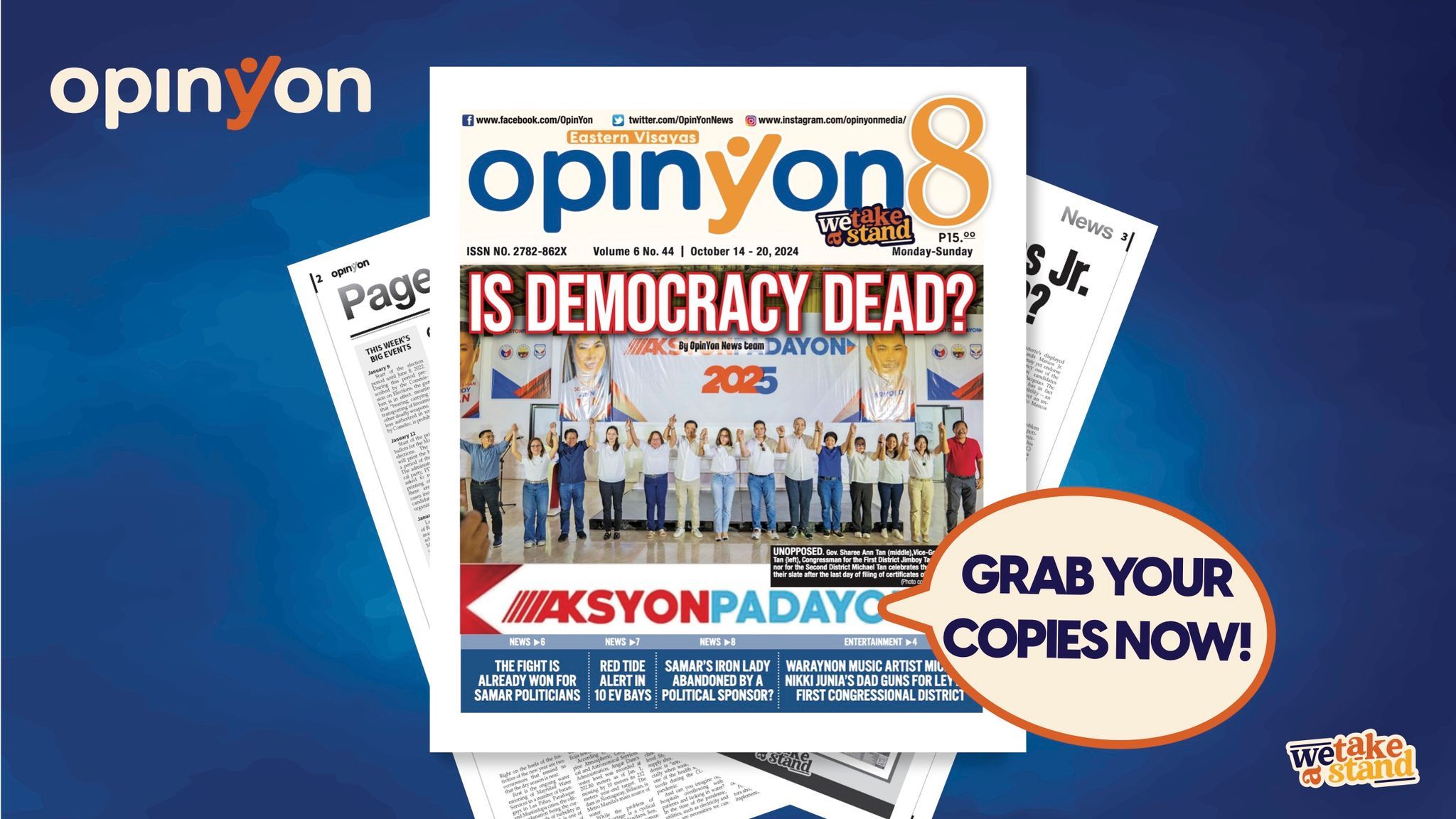A war already won?
The recent filing of certificates of candidacy in Samar has raised crucial questions about the state of democracy in the region.
With no opposition candidates standing against the incumbent or returning officials, the semblance of a robust democratic process appears to falter.
This alarming trend invites scrutiny into the nature of political competition and engagement within the province, prompting a reflection on the vitality of democratic principles in the Philippines.
Democracy thrives on the contestation of ideas, with elections serving as a pivotal platform for citizens to exercise their rights to choose their leaders.
However, the absence of opposition candidates in the latest filing suggests a troubling landscape where political power seems to be consolidating among a select few.
Such a situation raises concerns not only about accountability and representation but also about voter participation and civic engagement.
One critical dimension of this phenomenon is the potential for political dynasties to perpetuate themselves in power.
The region has a long history of political families dominating local and national offices, and in Samar, the trend appears to be continuing unabated.
When potential candidates perceive that they do not stand a chance against entrenched incumbents, they may choose to forgo the election altogether.
This can lead to a political environment devoid of fresh perspectives and new ideas, stifling the dynamism essential for a functioning democracy.
Moreover, the lack of opposition indicates a broader complacency among the electorate.
Voter apathy can stem from disenchantment with the political process, particularly if citizens feel that their choices are limited or that elected officials are not serving their interests.
In such an environment, the democratic ideal of informed citizen engagement becomes compromised.
When people believe their votes carry little weight, the fabric of democracy begins to unravel, with citizens opting out of the electoral process altogether.
The implications of unchallenged incumbency extend beyond political participation; they raise serious concerns about governance itself.
Without the checks and balances provided by a competitive electoral process, incumbents may feel less compelled to respond to their constituents’ needs.
The lack of opposition could lead to a culture of impunity, where leaders prioritize personal interests or familial loyalty over public service.
Effective governance relies on scrutiny and accountability, both of which are severely diminished when elections are largely uncontested.
Nevertheless, this situation does not necessarily signify the death of democracy in Samar but rather highlights significant challenges that must be addressed.
Civic education and engagement initiatives are vital in rekindling public interest in the electoral process and empowering citizens.
Encouraging grassroots movements and fostering a vibrant civil society can help cultivate a political environment where varied voices are heard, and competing ideas can flourish.
While the current lack of opposition candidates in Samar raises legitimate concerns about the health of democracy in the region, it also presents an opportunity for reflection and renewal.
Acknowledging the shortcomings in the democratic process is the first step toward fostering a more inclusive and participatory political landscape.
As the Philippines approaches its next elections, it is imperative for both citizens and leaders to recommit to the principles of democracy, ensuring that the voices of all constituents are valued and heard.
#WeTakeAStand #OpinYon #OpinYon8CoverStory #Democracy #LocalPoliticsinLeyte
